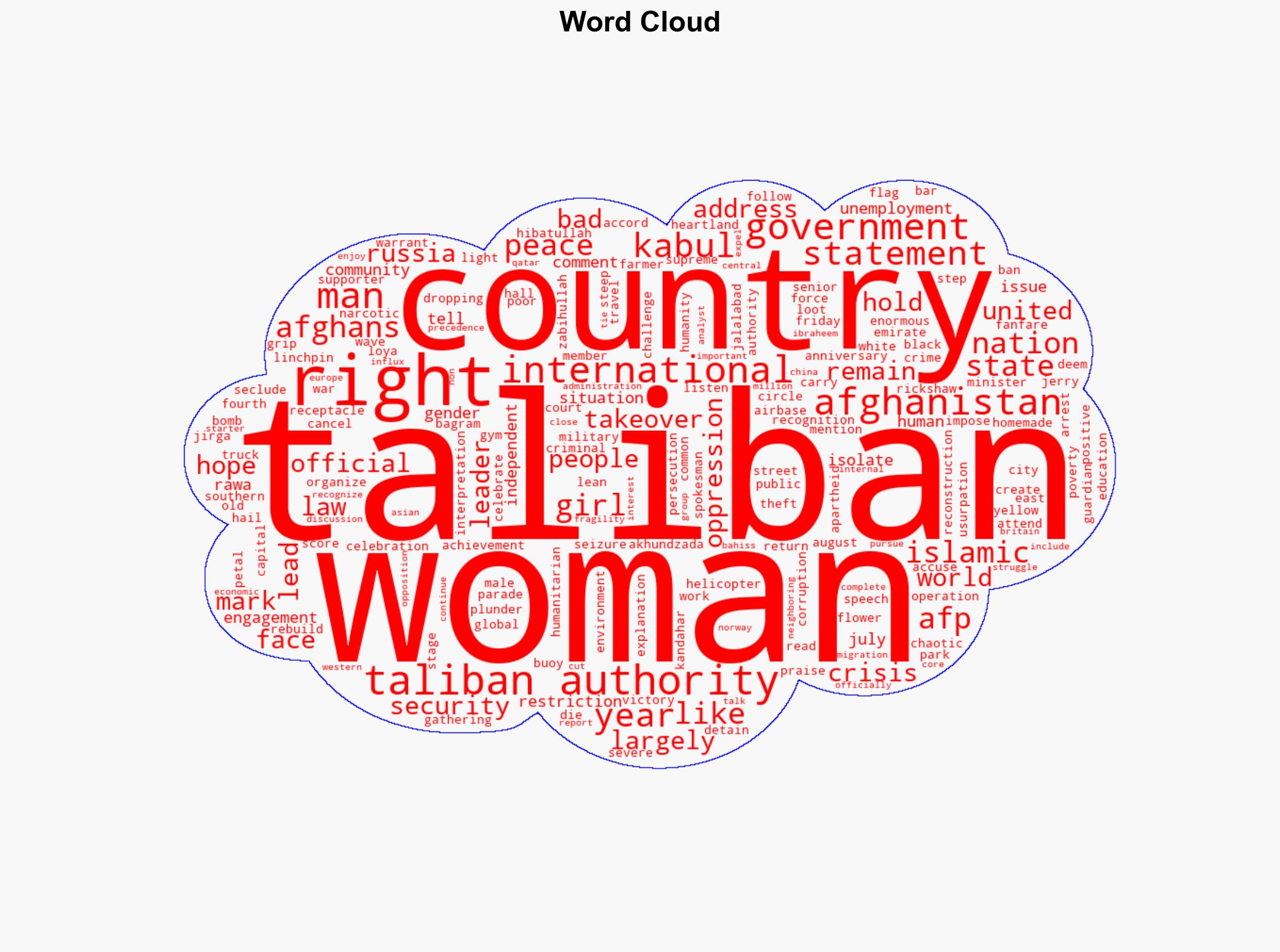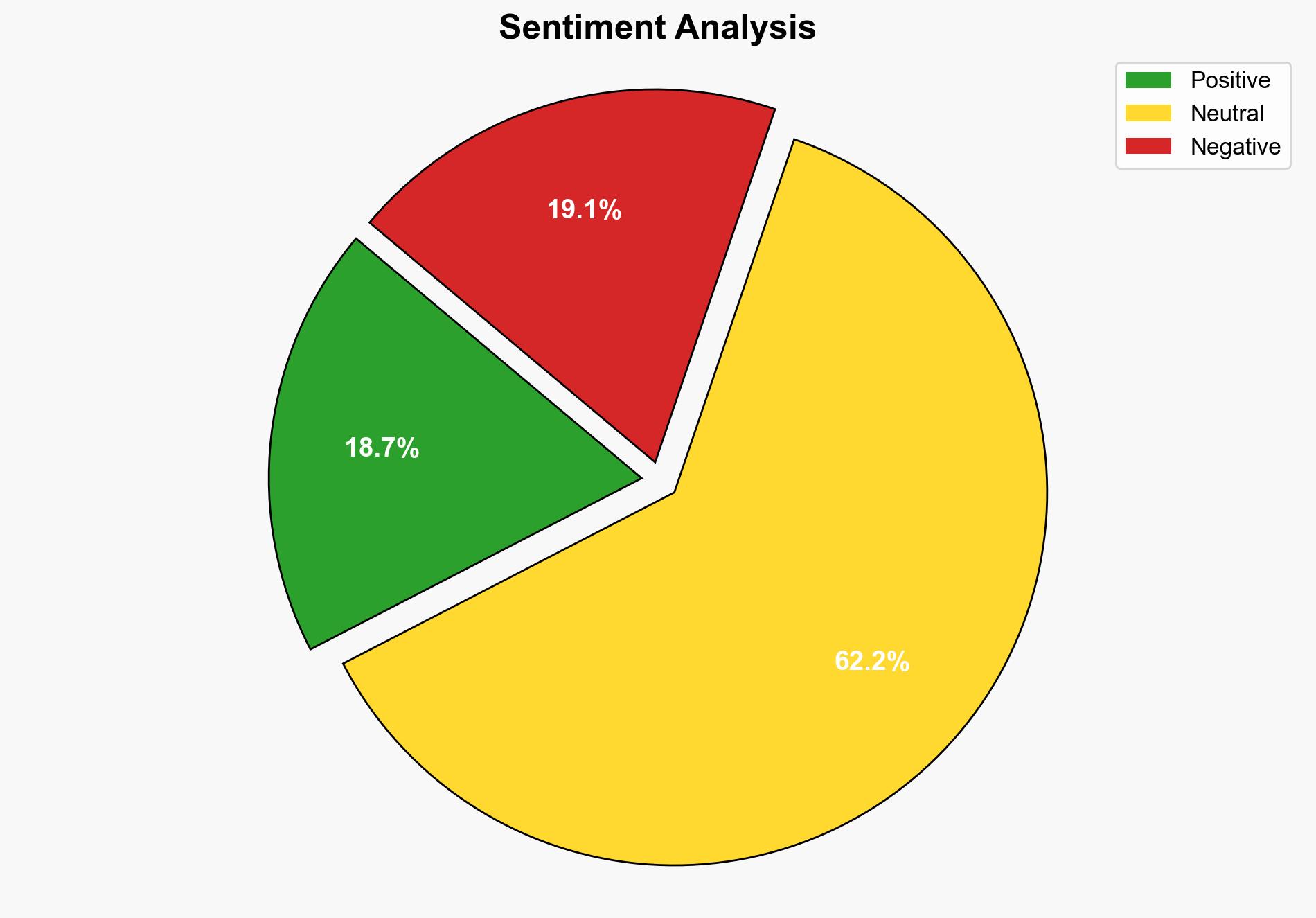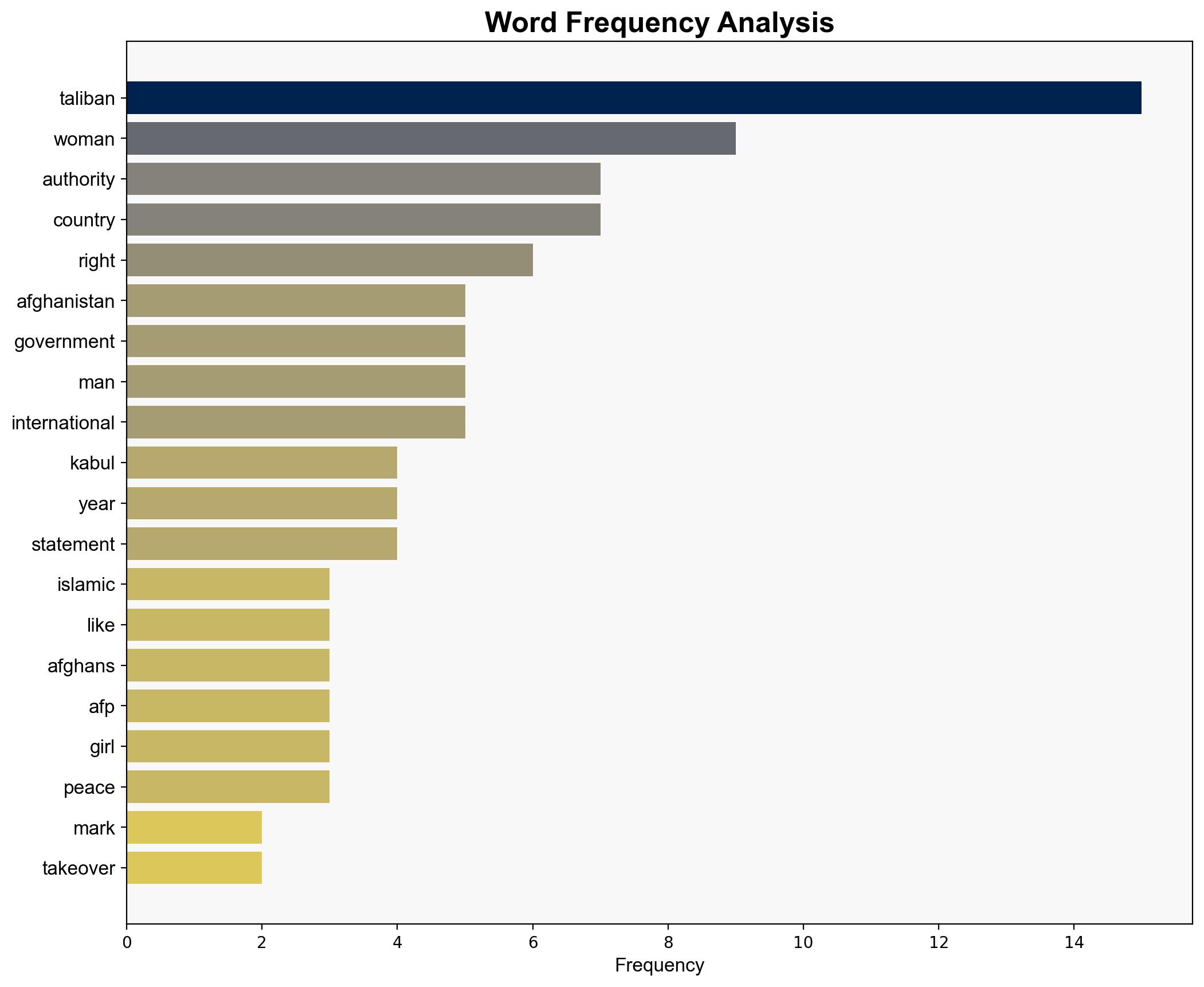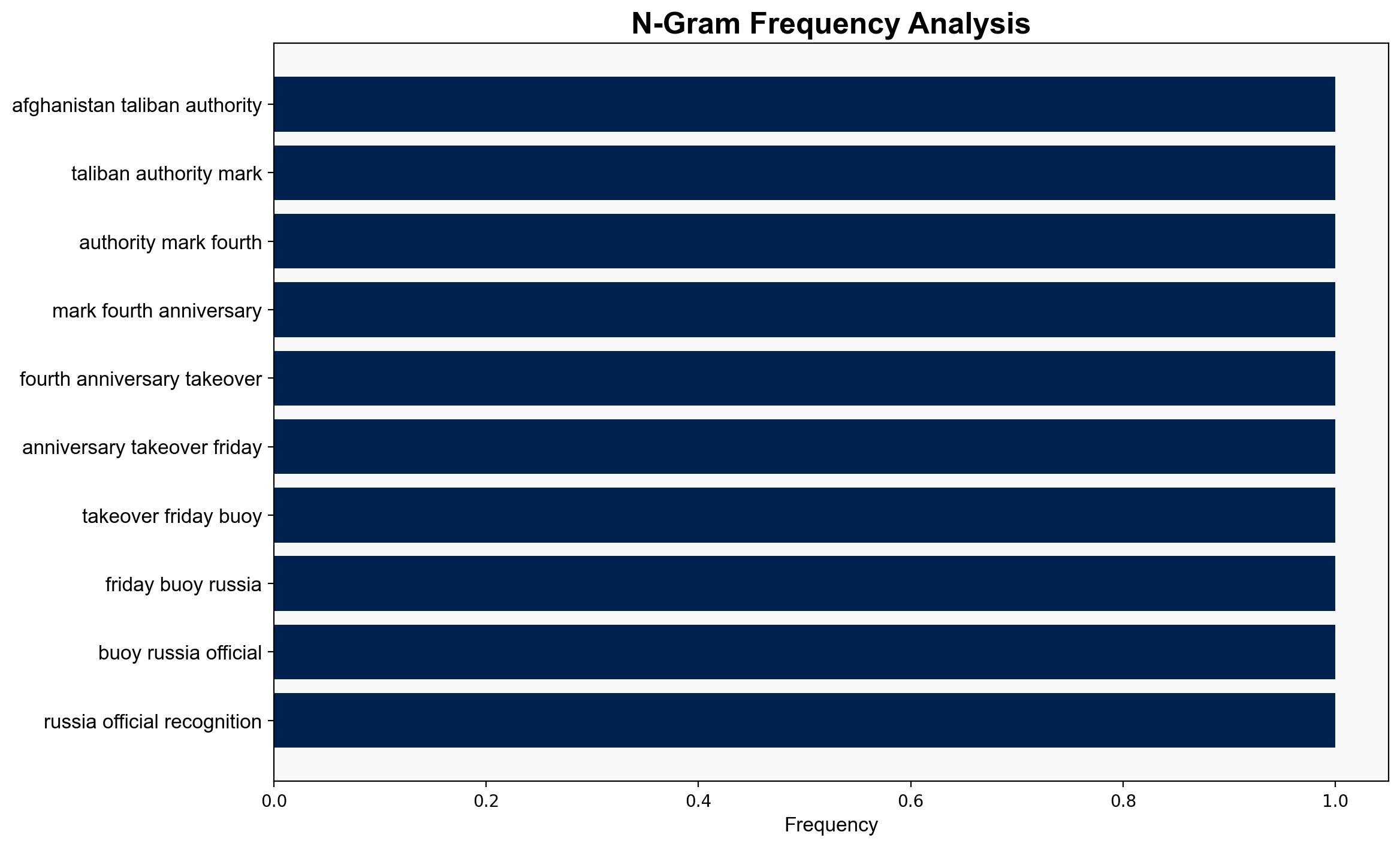Taliban mark fourth year in power in Afghanistan – Japan Today
Published on: 2025-08-15
Intelligence Report: Taliban mark fourth year in power in Afghanistan – Japan Today
1. BLUF (Bottom Line Up Front)
The Taliban’s fourth anniversary in power highlights both internal consolidation and external isolation. The most supported hypothesis is that the Taliban will continue to face significant international isolation due to their policies, particularly regarding women’s rights, despite some regional recognition. Confidence Level: Moderate. Recommended action includes increased diplomatic engagement with regional actors and humanitarian support to mitigate the humanitarian crisis.
2. Competing Hypotheses
Hypothesis 1: The Taliban will gain broader international recognition due to strategic alliances and regional partnerships, leading to increased legitimacy and economic support.
Hypothesis 2: The Taliban will remain largely isolated internationally due to their human rights record, especially concerning women’s rights, despite some regional recognition.
Using ACH 2.0, Hypothesis 2 is better supported due to the ongoing international condemnation and lack of significant change in Taliban policies towards women, which remains a critical barrier to broader recognition.
3. Key Assumptions and Red Flags
Assumptions include the belief that regional recognition equates to broader international acceptance, which may not hold if major powers maintain sanctions. A red flag is the potential overestimation of the impact of regional ties on global legitimacy. Missing data includes detailed insights into internal Taliban dynamics and potential shifts in policy.
4. Implications and Strategic Risks
The continued isolation of the Taliban could exacerbate Afghanistan’s humanitarian crisis, increasing regional instability and migration pressures. Economic fragility may lead to internal dissent or power struggles within the Taliban. Geopolitically, Afghanistan could become a focal point for proxy conflicts if external powers seek to influence the Taliban through regional allies.
5. Recommendations and Outlook
- Engage with regional partners like Qatar and China to mediate and influence Taliban policies, particularly on human rights.
- Provide humanitarian aid through non-governmental channels to alleviate the crisis without legitimizing the Taliban.
- Scenario Projections:
- Best Case: Taliban moderates policies, leading to gradual international engagement and economic recovery.
- Worst Case: Increased isolation leads to economic collapse and regional instability.
- Most Likely: Continued partial recognition with limited economic improvement and persistent humanitarian issues.
6. Key Individuals and Entities
Hibatullah Akhundzada, Zabihullah, Ibraheem Bahiss.
7. Thematic Tags
national security threats, regional focus, human rights, international relations




